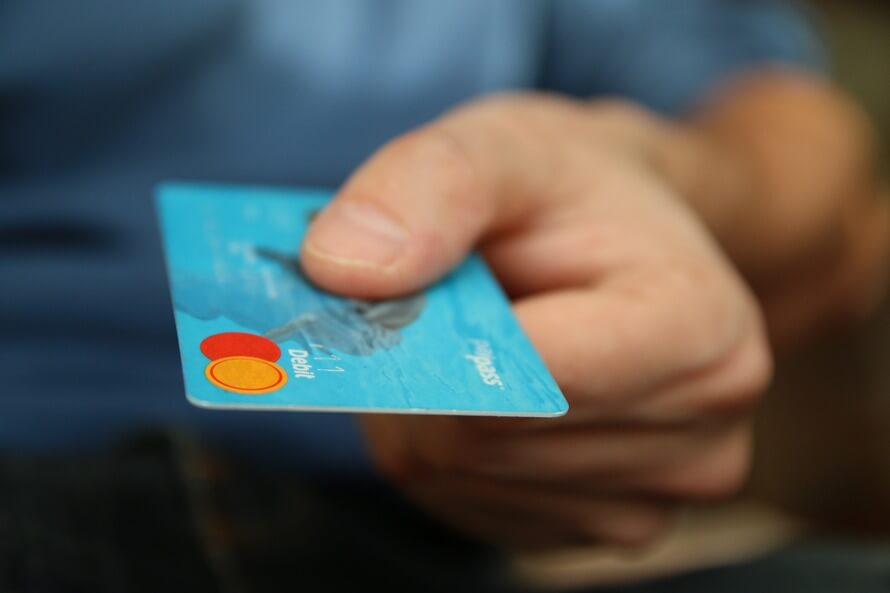
Rather than wait until you’ve become a victim before you brush up on credit card frauds, it’s best that you keep yourself aware of the most recent and prevalent threats. That way, you can save yourself a lot of frustration, time, and money. An ounce of prevention is most certainly worth a pound of cure whenever there’s money (especially yours) involved.
EMV Credit Card
You’ve likely noticed that credit cards now come with chips to prevent the very type of fraud some fall prey to when getting a new chip card. What happens is scammers pretend they’re credit card issuers and email cardholders to tell them they need to update their personal information before receiving their new card. Cardholders respond to the email or click on the link included in the fraudulent email and willingly hand over the requested information. Once scammers have the necessary details, they commit identity fraud.
To keep from falling for this scam, keep in mind that credit card company representatives never ask you to update your personal information through email. There’s also the fact that you’ll likely receive your new chip card in the mail without needing to do anything on your part. Any information you update regarding your card should be done directly from the card issuer’s website.
Potential Account Fraud
Some scammers use your desire to protect your credit accounts against you. The way this scam works is fraudsters contact you and claim they’re from your card issuer’s fraud department. To determine whether your account has been compromised, they need some personal information. In your worry, you may freely give over this information to keep potential ramifications at a minimum, which is what these criminals count on.
If you ever get a phone call like this, it’s best that you hang up and call the number on the back of your credit card yourself to see if there’s any fraudulent activity on your account. Even if the call is real, your card issuer is sure to understand and appreciate your skepticism.
Also, bear in mind the fact that the only time you want to give out personal information is when you’re the one to initiate a phone call, not when you receive one, especially if it’s a call you aren’t expecting. Credit monitoring is also a great way to be immediately notified of potentially fraudulent card activity.
Interest Rate Reduction
It’s understandable that you’d jump at the chance to reduce the amount of interest you’re paying on your credit card, right? This is something else fraudsters seek to capitalize on. You may receive a pre-recorded call from a representative of a credit card interest reducing program. To take advantage of your eligibility for the program, you’ll have to pay a fee and the company will handle the rest.
What’s worse (and scary) about this particular fraud is the fact that the scammer may already have some of your information, such as your address. Your card is charged for the service, and the criminal walks away with your money while your interest rate stays the same.
How do you avoid becoming a victim? Adding your number to the national Do Not Call registry is a great first step. Again, do not give out your personal information for a phone call you did not initiate. Finally, you can reach out to your credit card company yourself to see if you qualify for a lower interest rate.
Fake Calls From Your Hotel’s Front Desk
Not even hotels are safe from the reach of credit card criminals. Say you’re staying at a hotel and receive a phone call from the front desk. There’s been a computer glitch, and you’ll need to give your credit card information again. You do so, not thinking anything of it. The next thing you know, your credit card is being charged with a number of fraudulent purchases.
No matter how much you’re enjoying your relaxing time in the spa or pool, it’s best that you head to the front desk yourself to verify the issue, rather than willingly giving this information over the phone. A minor interruption to your vacation or business trip is better than the major interruption that comes from dealing with credit card fraud.
Free Wi-Fi
Nothing’s better than free wi-fi, right? Just be careful of what information you enter and access while taking advantage of the free wi-fi at coffee shops, libraries, airports, and the like.
What happens is criminals sometimes hack free internet connections and siphon any personal information you enter while online banking or placing a mobile order and entering your credit/debit card information. You’re better off using a secured connection (such as your phone’s data plan) to transmit such information.
Constant vigilance is a must when it comes to your credit card account. Always trust your gut, and work with your credit card company to do everything possible to secure your account, your finances, and your peace of mind.
